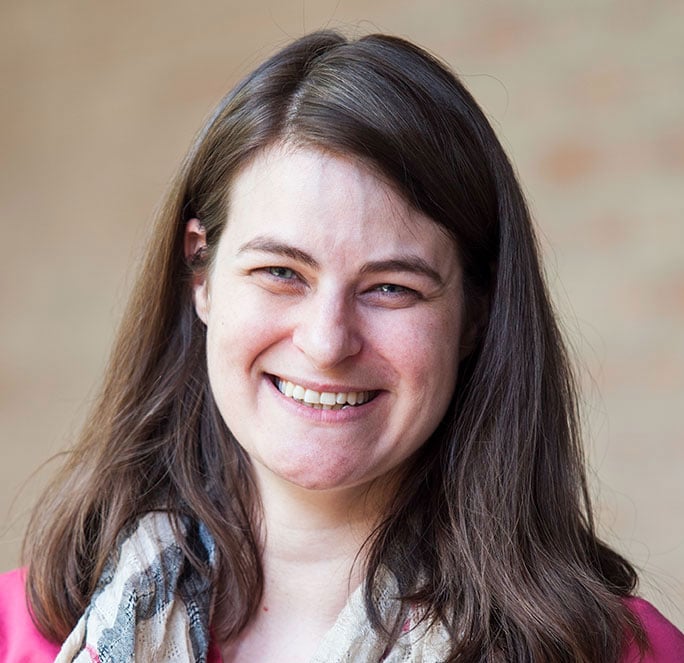Lesser known vocations: uncommon expressions of priesthood

Rev. Mariya James Susai Manickam, SAC, celebrates Saturday Mass at St. Michael Catholic Parish in Bedford, May 09, 2020. (NTC/Ben Torres)
So often when we hear about vocations, certain questions tend to circulate. “Should I be a priest?” or “Does God want me to be a nun?” or generally, “Do I have a vocation?” However, these questions are far too limited in nature to be helpful for most — especially when it seems they can only be answered with a “yes” or a “no,” with nothing in between and no room for the creative action of God. It’s also entirely passive in nature, as if God has already decided for me and I must sleuth it out.
In reality, a vocation is both a call and a response. We are all called to serve and to love God in a unique and vibrant way. All are called to fulfill the greatest commandments of loving God with our whole heart, mind, soul, and spirit and love our neighbor as ourselves. This is a call deep within our hearts, written there by the Creator Himself. So perhaps better questions to start with are: “How can I serve Him and His Church best? What work am I built for in this world?” To this, there are a wide variety of answers! Some vocations are more common than others, but each and every one provides vital assistance to the greater work of Christ through His Body, the Church.
With this in mind, we will shine a light on lesser-known vocations for men and women in our diocese. In a three-part series, we will look at a few unique ways that individuals pursue holiness and how they seek to love God with all their heart, mind, and soul. Specifically, we will highlight three things: uncommon expressions of the priesthood, different types of deacons, and vocational options for women.
Clerical Societies of Apostolic Life
When we think of priestly vocations, most likely our local priests and pastors come to mind. For the most part, these are either diocesan priests or religious priests, who belong to an order, such as Franciscans or Dominicans. While these men are vitally important for the life of the diocese, other forms of the priesthood help in this mission and are worthy of attention. In our diocese, several of our parishes are staffed by priests who are part of what is called a Clerical Society of Apostolic Life.
At the heart of their calling, priests are to offer sacrifice and petition for the people of God. In Clerical Societies of Apostolic Life, priests pursue this fundamental calling not through religious vows, but in an organized way specific to their community. Their works can vary significantly (such as healthcare, preaching, teaching, foreign missions) but they all work toward a common objective: filling a need.
For example, the Pallottines (SAC) focus on the evangelization of peoples and often are found in areas which have a shortage of priests. They help in schools, parishes, and in many other ways. Pallottines live out an echo of what Isaiah uttered before the Lord and His heavenly hosts, “Here I am Lord, send me” (6:8). Knowing they cannot accomplish these immense tasks alone, Pallottines are keen to empower the laity, and to do so they seek to evangelize and form these fellow workers in the vineyards where they are found.
Another example of a Society of Apostolic Life in our diocese is the Priestly Fraternity of St. Peter. Founded in 1988, the fraternity is a rather new community of priests whose mission is to form priests able to pray and celebrate well the Extraordinary Form of the Roman Rite — the traditional Latin Mass — and to offer care of souls in service of the Church. In our diocese, St. Benedict Parish opened in 2015 to provide pastoral care to Catholic families according to the liturgical books of 1962.
The goal of any vocation — whether single or married, young or old — is holiness: to serve and to love God more deeply and purely.
A calling to the priesthood is to be the product of a healthy and robust spiritual life and is born out of prayer as a gift to the Church and to the Body of Christ.
Regardless of one’s starting place, the goal is the same: holiness and the pursuit of unity with Christ in all things. God calls some of us to be set apart for Him, to give of themselves more exclusively. This pull on one’s heart, this yearning to do more and give more, is in itself beautiful. Whether you are young or older, whether you find yourself single, married, or widowed, God may be calling you to more. And there are other options alongside diocesan priesthood and religious life. Pray that God may open our hearts to hear His gentle voice, and that they may hear and say in return, “Here I am, Lord. Your servant is listening.”

Callie Nowlin, MTS, is a regular contributor to the North Texas Catholic.
Scripture texts in this work are taken from the New American Bible, revised edition © 2010, 1991, 1986, 1970 Confraternity of Christian Doctrine, Washington, D.C. and are used by permission of the copyright owner. All Rights Reserved. No part of the New American Bible may be reproduced in any form without permission in writing from the copyright owner.
